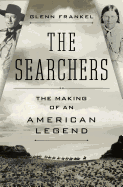Amazon's Treatment of Workers Investigated in Germany
 Following a half-hour report last week by the ARD network alleging that seasonal workers at Amazon's warehouses in Germany, its second-largest market after the U.S., have been underpaid and maltreated--and that one neo-Nazi company provided abusive "security" at one warehouse and its housing for foreign workers--the company is scrambling to contain the damage.
Following a half-hour report last week by the ARD network alleging that seasonal workers at Amazon's warehouses in Germany, its second-largest market after the U.S., have been underpaid and maltreated--and that one neo-Nazi company provided abusive "security" at one warehouse and its housing for foreign workers--the company is scrambling to contain the damage.
As Deutsche Welle put it, the ARD piece "explored tiny temporary accommodation, unreliable bus transportation to and from Amazon offices, temporary and unsecured contracts, as well as the last-minute outsourcing of work contracts to employment agencies--reportedly paying less than the wages advertised on the original job application."
The last point has become a national issue. On Sunday, federal Minister of Labor and Social Affairs Ursula von der Leyen said that the government would investigate charges of underpayment of workers. She threatened that the licenses of Amazon contractors may be revoked.
The news that attracted the most revulsion concerned a security firm with the unfortunate acronym HESS (Hensel European Security Services), also the name of Hitler's Deputy Führer Rudolf Hess. ARD accused HESS of harassing immigrant workers living in Amazon housing near one Amazon warehouse. HESS employees were said to wear clothing designed by Thor Steinar, a Berlin brand linked to neo-Nazis. HESS has denied the accounts; yesterday Amazon said it had severed ties with HESS.
But the "security" problems may not be limited to HESS. ARD also alleged, as the Independent noted, "a broader climate of intimidation at Amazon's seven logistics centers in Germany, including threats of random staff searches, constant pressure to perform better and firing of workers who complained. It also appeared to show employees' rooms being searched, and staff being frisked at breakfast and constantly watched."
Minus the neo-Nazi angle, the charges are reminiscent of stories in recent years about conditions in Amazon warehouses in the U.S., some of which for a time had no air conditioning in brutal heat and where the company favors hiring temporary workers in an attempt, some say, to keep pay low and make it more difficult for unions to organize Amazon operations.
Not surprisingly, some German consumers and union leaders have reacted negatively. And at least one publisher has said he will no longer do business with Amazon. In an "Adieu Amazon" letter to Amazon CEO Jeff Bezos, which appeared in Boersenblatt, Christopher Schroer, who publishes art books, monographs and exhibition catalogues under the Ch. Schroer and Neue Sachlichkeit imprints, had several complaints:
- Amazon's insistence on an "exorbitant" 50% discount and 5% stocking fee (even when Amazon doesn't stock the books).
- Amazon's use of "tricks" to avoid taxes, including requiring bills to be sent outside the European Union.
- The appearance of new books on the "damaged" book section of Amazon Marketplace.
- The outsourcing of many of the Amazon staffers publishers deal with to India, where there is less protection and fewer rights for workers than in Europe.
Referring to the ARD report, Schroer objected, too, to Amazon's treatment of immigrant temporary workers. "These people, your employees, your 'human capital,' you treat just as unfairly as you already have treated us."
In conclusion, he said, "You are, you never were and you never will be a company that treats people like people, publishers like partners and customers like kings. You are not a company that is committed to the cultural treasure of the book. You are not a company that has social and ethical principles."
In Buchreport, German e-commerce expert Gerrit Heinemann said he expected little fallout for Amazon from the general public in Germany because "there is no real alternative to Amazon," which has the highest rating for customer satisfaction. "The fact is that in comparison to Amazon, most online retailers are simply bad."
Heinemann noted, too, that Amazon is an example of American companies in the new economy that focus on low prices, which necessitate low costs. In some ways, Apple is worse about this than Amazon, "but ask an Apple customer if he'll give up his Apple product...."





SHELFAWARENESS.1222.S1.BESTADSWEBINAR.gif)
SHELFAWARENESS.1222.T1.BESTADSWEBINAR.gif)
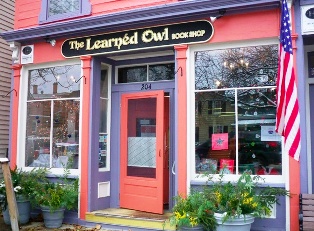 Liz Murphy, owner of the Learned Owl Book Shop in Hudson, Ohio, has sold the store to employee Kate Schlademan.
Liz Murphy, owner of the Learned Owl Book Shop in Hudson, Ohio, has sold the store to employee Kate Schlademan.

 Canadian bookseller
Canadian bookseller  Now in its eighth year, the American Booksellers Association's Winter Institute continues to be a fertile place for launching the bestsellers of the future. As Geoffrey Jennings from Rainy Day Books in Kansas City--host city of this year's Winter Institute--observed, "It would behoove people to pay attention to what books come out of the Winter Institute." At the first Winter Institute, for example, Sara Gruen's Water for Elephants broke out, and last year The One and Only Ivan by
Now in its eighth year, the American Booksellers Association's Winter Institute continues to be a fertile place for launching the bestsellers of the future. As Geoffrey Jennings from Rainy Day Books in Kansas City--host city of this year's Winter Institute--observed, "It would behoove people to pay attention to what books come out of the Winter Institute." At the first Winter Institute, for example, Sara Gruen's Water for Elephants broke out, and last year The One and Only Ivan by 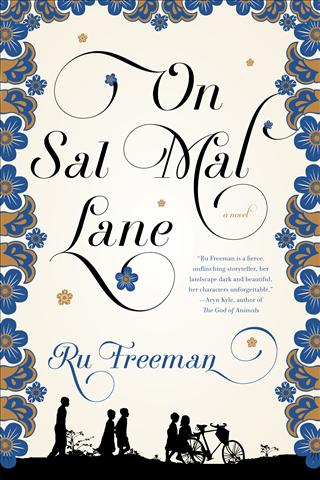 Atop bookseller fiction buzz lists going into Winter Institute 8 this coming weekend are On Sal Mal Lane by Ru Freeman (Graywolf, May) and We Need New Names by NoViolet Bulawayo (Reagan Arthur/Little, Brown, May). On Sal Mal Lane opens on a street that represents a mix of the population of Sri Lanka on the brink of civil war in the late 1970s and early 1980s. We Need New Names, a debut novel, takes place in Zimbabwe and focuses on a group of children, among them Darling, a 10-year-old from a middle-class family forced to move to a shantytown as the country falls into unrest and unbelievable brutality. They often don't have enough food but are exposed to plenty of American television. The title comes from a chapter in which the children play "ER" as they deal with a medical problem of one of their own and decide that they need names different from the TV characters. Eventually Darling leaves Zimbabwe to live with an aunt in Detroit--which, said Annie Philbrick from Bank Square Books in Mystic, Conn., gives the author license to take the book in an even deeper direction, looking at America through the immigrant girl's eyes. "I needed to put it down every once in a while," said Philbrick, who called the writing "sparse."
Atop bookseller fiction buzz lists going into Winter Institute 8 this coming weekend are On Sal Mal Lane by Ru Freeman (Graywolf, May) and We Need New Names by NoViolet Bulawayo (Reagan Arthur/Little, Brown, May). On Sal Mal Lane opens on a street that represents a mix of the population of Sri Lanka on the brink of civil war in the late 1970s and early 1980s. We Need New Names, a debut novel, takes place in Zimbabwe and focuses on a group of children, among them Darling, a 10-year-old from a middle-class family forced to move to a shantytown as the country falls into unrest and unbelievable brutality. They often don't have enough food but are exposed to plenty of American television. The title comes from a chapter in which the children play "ER" as they deal with a medical problem of one of their own and decide that they need names different from the TV characters. Eventually Darling leaves Zimbabwe to live with an aunt in Detroit--which, said Annie Philbrick from Bank Square Books in Mystic, Conn., gives the author license to take the book in an even deeper direction, looking at America through the immigrant girl's eyes. "I needed to put it down every once in a while," said Philbrick, who called the writing "sparse."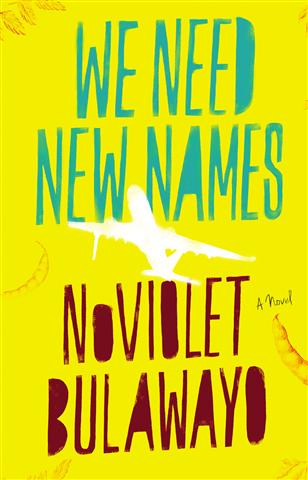
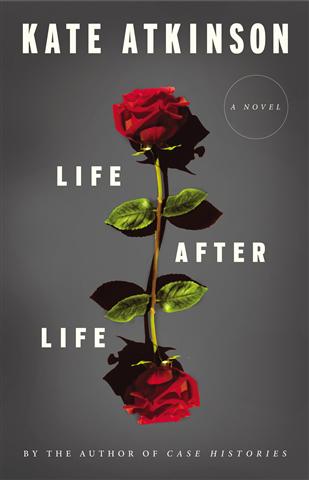 "Booker worthy": that's how Sheryl Cotleur, from Copperfield's Books in Petaluma, Calif., described another buzz favorite, Kate Atkinson's Life After Life (Reagan Arthur/Little, Brown, April). Cotleur admitted that the premise sounded a little "hokey"--it opens with the main character being stillborn and goes on to have her and others step into different versions of their same lives (one has a gun pointed at Hitler in a café)--"but the book is really well done." Gayle Shanks from Changing Hands in Tempe, Ariz., said she could not understand how Atkinson managed to keep what happens to all the characters in the various versions of their lives straight. "She did not make one mistake," Shanks said.
"Booker worthy": that's how Sheryl Cotleur, from Copperfield's Books in Petaluma, Calif., described another buzz favorite, Kate Atkinson's Life After Life (Reagan Arthur/Little, Brown, April). Cotleur admitted that the premise sounded a little "hokey"--it opens with the main character being stillborn and goes on to have her and others step into different versions of their same lives (one has a gun pointed at Hitler in a café)--"but the book is really well done." Gayle Shanks from Changing Hands in Tempe, Ariz., said she could not understand how Atkinson managed to keep what happens to all the characters in the various versions of their lives straight. "She did not make one mistake," Shanks said. This will be confusing, but there's another book being promoted at Winter Institute with the title Life After Life. This one is from Algonquin (March) and is by indie favorite Jill McCorkle. It features a cast of incredible characters who occupy the Pine Heaven Retirement Center. "If I ever have to live in a retirement home, this is the kind of place I want to live in," said Philbrick.
This will be confusing, but there's another book being promoted at Winter Institute with the title Life After Life. This one is from Algonquin (March) and is by indie favorite Jill McCorkle. It features a cast of incredible characters who occupy the Pine Heaven Retirement Center. "If I ever have to live in a retirement home, this is the kind of place I want to live in," said Philbrick.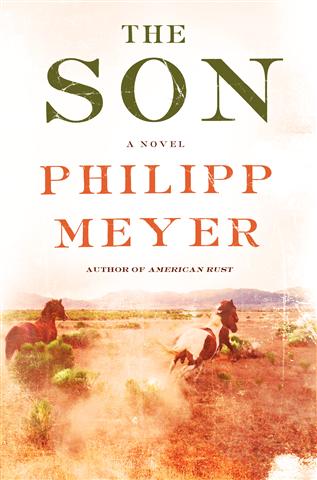 Many booksellers look for books that likely will take their writers to new prominence, and this year Mark Slouka (known for Lost Lake) and Philipp Meyer (who wrote American Rust) fit that bill. "It's Lonesome Dove meets Cormac McCarthy," said Mitchell Kaplan, from Books & Books, Coral Gables, Fla., about Meyer's The Son (Ecco, May), which deals with the founding of Texas as observed by many people across generations.
Many booksellers look for books that likely will take their writers to new prominence, and this year Mark Slouka (known for Lost Lake) and Philipp Meyer (who wrote American Rust) fit that bill. "It's Lonesome Dove meets Cormac McCarthy," said Mitchell Kaplan, from Books & Books, Coral Gables, Fla., about Meyer's The Son (Ecco, May), which deals with the founding of Texas as observed by many people across generations.  Slouka's Brewster (Norton, Aug.) is about two boys growing up in upstate New York on the cusp of the Vietnam War. The Tattered Cover's Langer--who was a teenager during that time--said she had flashbacks about a boyfriend who was getting his draft number. "At first I thought it was a guy novel," Langer said, but it really gripped her.
Slouka's Brewster (Norton, Aug.) is about two boys growing up in upstate New York on the cusp of the Vietnam War. The Tattered Cover's Langer--who was a teenager during that time--said she had flashbacks about a boyfriend who was getting his draft number. "At first I thought it was a guy novel," Langer said, but it really gripped her. Winter Institute has also established itself as a place for debut novelists to be noticed. Among debuts on the radar this year: A Constellation of Vital Phenomena by Anthony Marra (Hogarth, May), The Blood of Heaven by Kent Wascom (Grove, June), Norwegian by Night by Derek B. Miller (Houghton Mifflin, May), The Golem and the Jinni by Helene Wecker (Harper, April) and The Unchangeable Spots of Leopards by Kristopher Jansma (Viking, March).
Winter Institute has also established itself as a place for debut novelists to be noticed. Among debuts on the radar this year: A Constellation of Vital Phenomena by Anthony Marra (Hogarth, May), The Blood of Heaven by Kent Wascom (Grove, June), Norwegian by Night by Derek B. Miller (Houghton Mifflin, May), The Golem and the Jinni by Helene Wecker (Harper, April) and The Unchangeable Spots of Leopards by Kristopher Jansma (Viking, March).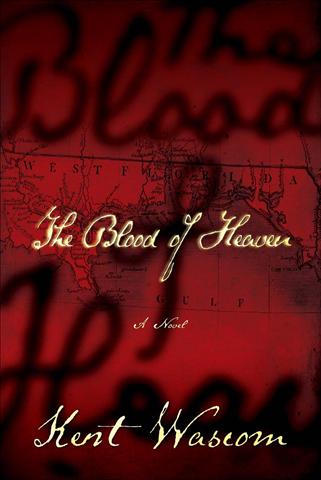 And he called The Blood of Heaven "fierce"--that novel is set in the early days of the U.S. and involves the conspiracy by Aaron Burr possibly to set himself up as head of state in an independent country in the West or Mexico. "I will be very careful who I handsell that one to," said Cusumano.
And he called The Blood of Heaven "fierce"--that novel is set in the early days of the U.S. and involves the conspiracy by Aaron Burr possibly to set himself up as head of state in an independent country in the West or Mexico. "I will be very careful who I handsell that one to," said Cusumano.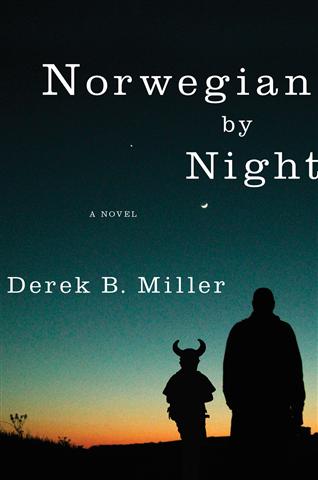 For Norwegian by Night--which takes place in Norway, where a former marine sniper in Korea settles with his granddaughter and her new husband--Houghton's tagline is: "a literary novel, a thriller and the funniest book you will ever read about war crimes and dementia." As Bank Square's Philbrick said: "What can go wrong with that? And it even has the word 'Norwegian' in the title."
For Norwegian by Night--which takes place in Norway, where a former marine sniper in Korea settles with his granddaughter and her new husband--Houghton's tagline is: "a literary novel, a thriller and the funniest book you will ever read about war crimes and dementia." As Bank Square's Philbrick said: "What can go wrong with that? And it even has the word 'Norwegian' in the title."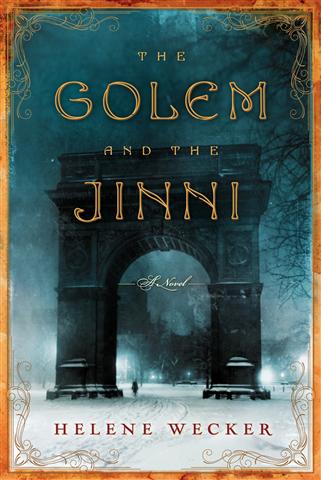 The Golem and the Jinni is about two supernatural beings who befriend each other in 1899 New York, and The Unchangeable Spots of Leopards is a contemporary novel about two male writers from very different backgrounds who meet in college and vie for the attention of the same outlandish young woman. Noting that readers do not always want to read dark fiction, Jennings though both of these titles might have more mainstream appeal than the debut novels with heavier premises.
The Golem and the Jinni is about two supernatural beings who befriend each other in 1899 New York, and The Unchangeable Spots of Leopards is a contemporary novel about two male writers from very different backgrounds who meet in college and vie for the attention of the same outlandish young woman. Noting that readers do not always want to read dark fiction, Jennings though both of these titles might have more mainstream appeal than the debut novels with heavier premises.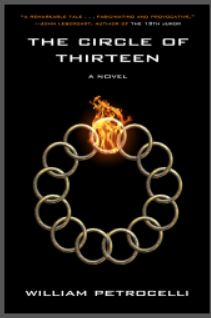 Among the most celebrated debuts at Winter Institute 8 is
Among the most celebrated debuts at Winter Institute 8 is  Among authors attending Wi8 with new novels are: Jeannette Walls (The Silver Star, Scribner, June), Curtis Sittenfeld (Sisterland, Random House, June), Christina Schwarz (The Edge of the Earth, Atria, April) Cathleen Schine (Fin and Lady, Sara Crichton/FSG, July), Ann Hood (The Obituary Writer, Norton, Feb.), Ruth Ozeki (A Tale for the Time Being, Viking, March) and Gail Godwin (Flora, Bloomsbury, May).
Among authors attending Wi8 with new novels are: Jeannette Walls (The Silver Star, Scribner, June), Curtis Sittenfeld (Sisterland, Random House, June), Christina Schwarz (The Edge of the Earth, Atria, April) Cathleen Schine (Fin and Lady, Sara Crichton/FSG, July), Ann Hood (The Obituary Writer, Norton, Feb.), Ruth Ozeki (A Tale for the Time Being, Viking, March) and Gail Godwin (Flora, Bloomsbury, May).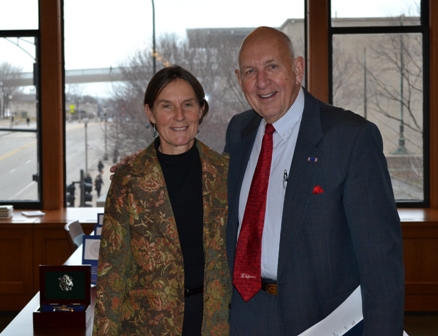
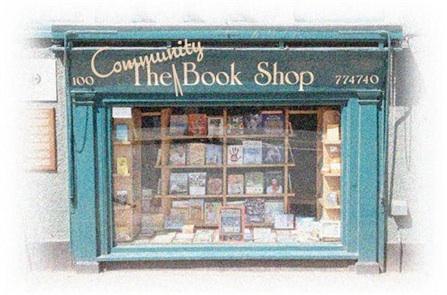 Noting that there has been a a "near 10% increase in U.K. co-operative enterprises over the last two years, rising from 5,450 (in 2010) to approaching 6,000," the Guardian focused on
Noting that there has been a a "near 10% increase in U.K. co-operative enterprises over the last two years, rising from 5,450 (in 2010) to approaching 6,000," the Guardian focused on 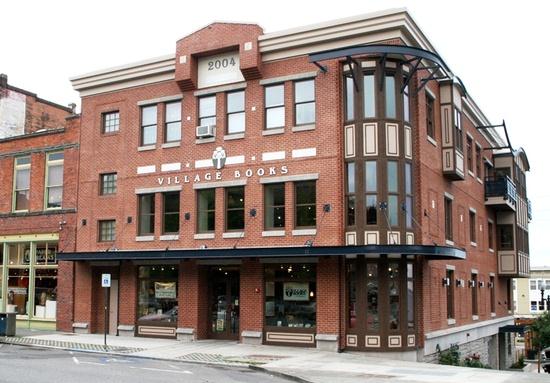 Congratulations to
Congratulations to 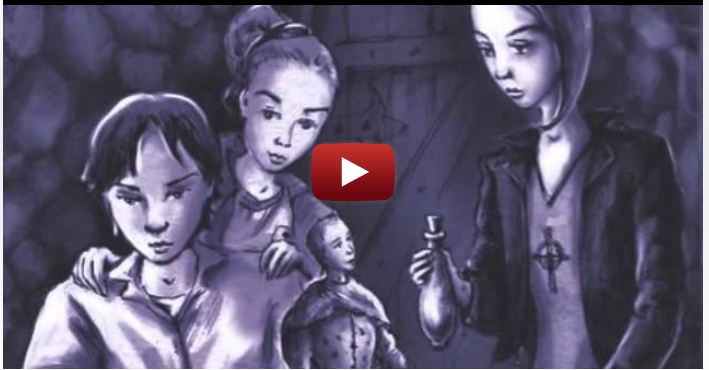 The Obsidian Dagger
The Obsidian Dagger Pulitzer Prize-winning journalist Glenn Frankel very smartly explores new territory with The Searchers, an illuminating and insightful inquiry into the complex nexus where history, film and popular culture meet. His subject seems to be one of the greatest films ever made, but it's really about how that film is the "greatest Hollywood film that few people have seen." The claim seems counterintuitive--after all, it's one of the most famous movies of the 20th century--but Frankel suggests there are layers to John Ford's The Searchers that most of its audience won't have noticed.
Pulitzer Prize-winning journalist Glenn Frankel very smartly explores new territory with The Searchers, an illuminating and insightful inquiry into the complex nexus where history, film and popular culture meet. His subject seems to be one of the greatest films ever made, but it's really about how that film is the "greatest Hollywood film that few people have seen." The claim seems counterintuitive--after all, it's one of the most famous movies of the 20th century--but Frankel suggests there are layers to John Ford's The Searchers that most of its audience won't have noticed.